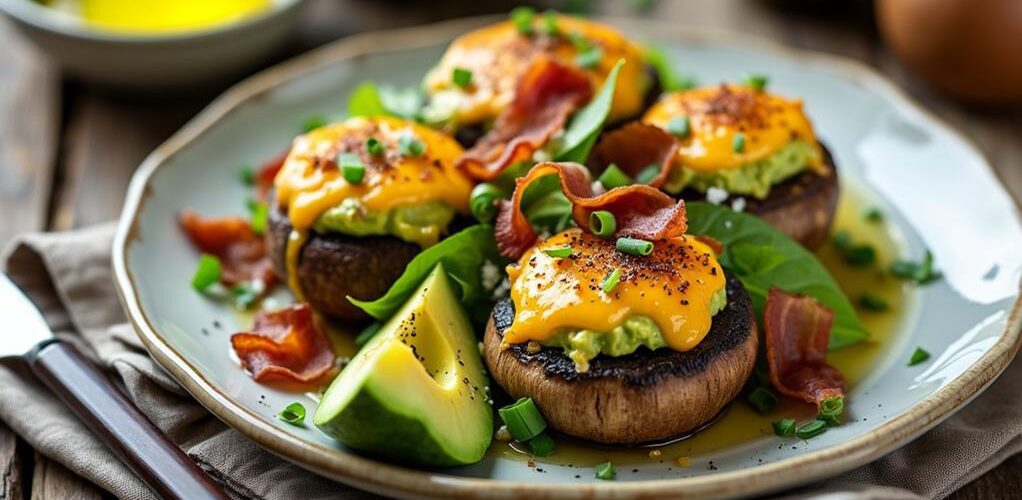
To enhance your ketogenic diet, prioritize high-fat foods such as avocados, nuts, and fatty fish, which provide heart-healthy monounsaturated fats and omega-3 fatty acids. Cooking with oils like extra virgin olive oil, coconut oil, and avocado oil can increase your fat intake while offering various health benefits, including improved cardiovascular health and rapid ketosis initiation. Finally, choose snacks wisely by incorporating nut butter, full-fat dairy products, and fat bombs made from coconut oil and nut butter. These strategies will guarantee a successful keto journey. Discover more nuanced approaches to optimize your ketogenic lifestyle further.
Key Takeaways
- Choose avocados, nuts, and fatty fish to incorporate a variety of high-fat foods into your diet.
- Cook with healthy oils like extra virgin olive oil, coconut oil, and avocado oil.
- Snack on nut butter, full-fat dairy, and fat bombs for quick, high-fat options.
- Use dips like sour cream and guacamole with low-carb vegetables for satisfying snacks.
- Include nut oils like walnut or hazelnut oil to enhance flavor and increase healthy fat intake.
Choose High-Fat Foods
When starting on a ketogenic diet, a fundamental principle is to prioritize the consumption of high-fat foods. One of the key sources of healthy fats is the avocado, which offers numerous benefits.
Avocados are rich in heart-healthy monounsaturated fats, providing approximately 15 grams of fat per medium fruit. This fruit not only contributes to satiety but also supports cardiovascular health.
Another excellent option is incorporating a variety of nuts into your diet. Nut varieties such as macadamia nuts and pecans are particularly beneficial due to their high-fat, low-carb profiles. These nuts contain approximately 21-24 grams of fat per ounce, making them suitable for sustaining ketosis while also offering a convenient snacking option.
In addition to plant-based fats, fatty fish like salmon are essential to a ketogenic diet. A 3-ounce serving of salmon supplies around 13 grams of fat and is an exceptional source of omega-3 fatty acids, which are vital for heart health and reducing inflammation.
Cook With Healthy Oils
Cook With Healthy Oils
Understanding the importance of cooking with healthy oils can greatly enhance the efficacy and health benefits of a ketogenic diet. Utilizing diverse oil varieties not only enriches the nutritional profile of your meals but also supports the body's metabolic processes essential for ketosis.
Extra virgin olive oil, rich in monounsaturated fats and antioxidants, serves as an excellent base for salad dressings and marinades, thereby boosting both flavor and health benefits. It is also known for promoting cardiovascular health and enhancing the absorption of fat-soluble vitamins.
Incorporating coconut oil into your cooking routines is advantageous due to its high medium-chain triglycerides (MCTs) content, which can expedite ketosis and furnish the body with quick, sustainable energy.
For high-heat cooking techniques such as sautéing, avocado oil is ideal due to its high smoke point and abundance of heart-healthy fats. This makes it particularly suitable for preparing nutrient-dense vegetables.
Sesame oil, with its unique flavor profile and antioxidant properties, can be experimented with in Asian-inspired dishes, adding both taste and nutritional value.
Finally, drizzling dishes with nut oils such as walnut or hazelnut oil can provide a rich flavor boost and augment healthy fat content without increasing carbohydrate intake.
These oil varieties and cooking techniques collectively fortify the nutritional foundation of a ketogenic diet.
Snack Wisely
Ideal snacking is critical in maintaining the balance and success of a ketogenic diet, particularly in managing hunger between meals. Selecting high-fat snacks is essential to meet the macronutrient requirements of a keto diet while guaranteeing satiation and nutritional adequacy.
Nut butter, specifically from macadamia nuts or almonds, provides a convenient and dense source of healthy fats and proteins. These nut butters can be consumed alone or paired with low-carb vegetables for an added nutritional boost. Additionally, keto-friendly sweeteners such as stevia or erythritol can be added to nut butters for a hint of sweetness without disrupting ketosis.
Cheese pairings are another excellent option, with full-fat dairy products such as cheddar or mozzarella contributing considerably to daily fat intake. Pairing cheese with nuts or low-carb vegetables not only enhances the taste but also guarantees a balanced snack that adheres to ketogenic principles.
Avocado and guacamole stand out as exemplary snacks, rich in monounsaturated fats that are beneficial for heart health. Incorporating these into your diet can help maintain the delicate balance required for ketosis.
Fat bombs, made from coconut oil, nut butter, and cocoa powder, offer a concentrated and portable source of fats, ideal for on-the-go snacking. Additionally, dips like sour cream or cream cheese-based spreads can be paired with low-carb vegetables to create a satisfying and fat-rich snack, aligning with ketogenic dietary goals.
Frequently Asked Questions
How to Get Extra Fat on Keto?
To increase fat intake on a keto diet, incorporate fatty snacks like nuts and seeds, and utilize cooking oils such as olive oil or avocado oil. Additionally, full-fat dairy products and fat-enhanced beverages can greatly boost daily fat consumption.
How to Do a Fat Fast on Keto?
To conduct a fat fast on keto, consume 80-90% of daily calories from high-fat foods like butter and coconut oil for 3-5 days. Fat fasting benefits include improved fat oxidation and reduced cravings. Essential fat fasting tips: stay hydrated, monitor electrolytes.
What Happens if I Don't Eat Enough Fat on Keto?
Inadequate fat intake on a keto diet can result in fat deficiency symptoms such as fatigue, brain fog, and irritability. The low-fat consequences include impaired ketosis, reduced energy levels, nutrient deficiencies, and increased hunger, complicating diet adherence.
What Are the Healthy Filling Fats for Keto Diet?
Healthy filling fats for a keto diet include avocado benefits, nut varieties, olive oil, coconut cream, cheese options, fatty fish, seed oils, and butter types. These sources provide essential nutrients, promote satiety, and support heart health.
Conclusion
Incorporating high-fat foods, utilizing healthy oils in culinary practices, and selecting appropriate snacks are effective strategies to enhance fat intake in a ketogenic diet. These methods align with the dietary goals of maintaining ketosis and optimizing metabolic health. Evidence suggests that such approaches can improve adherence to the diet, support energy levels, and potentially offer various metabolic benefits. Implementing these tips systematically can facilitate the achievement of nutritional objectives associated with a ketogenic lifestyle.

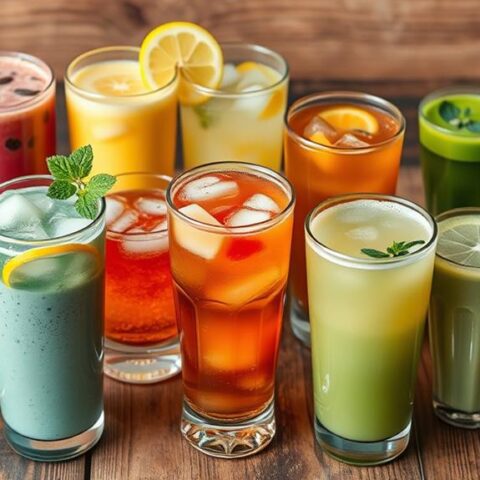
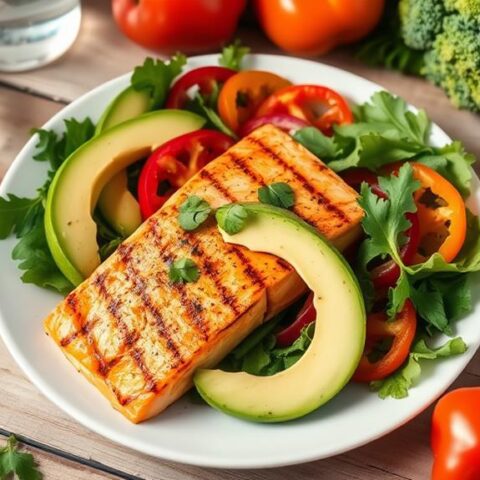
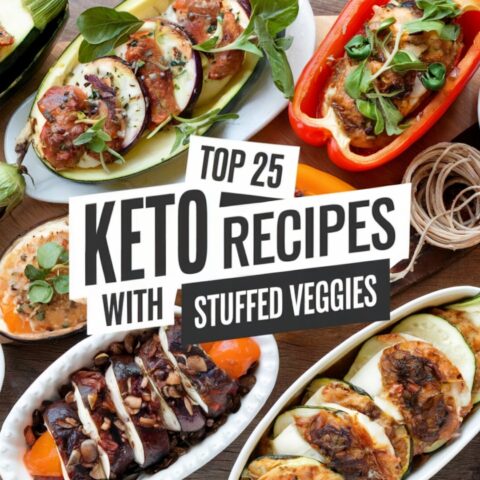
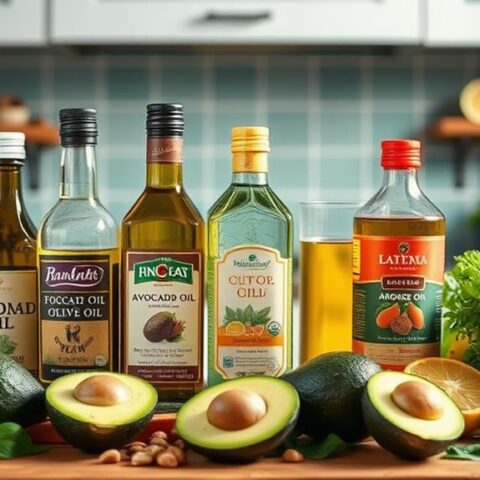
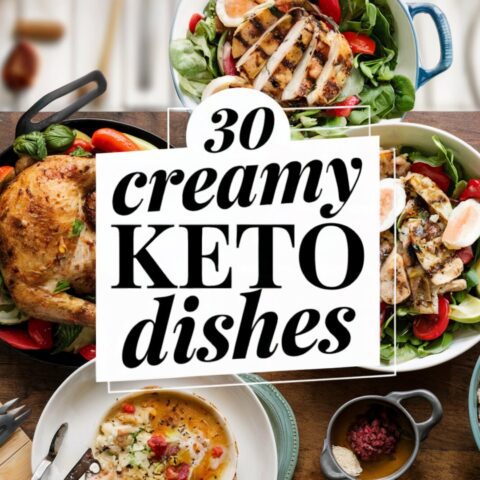




No Comments